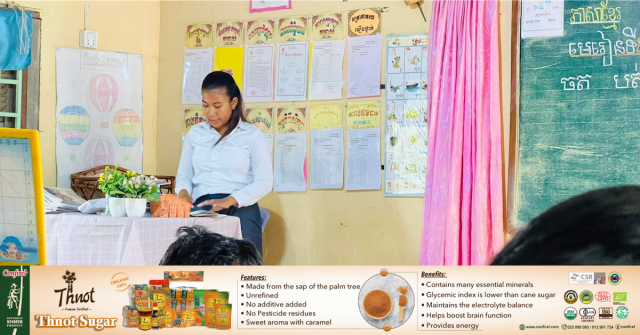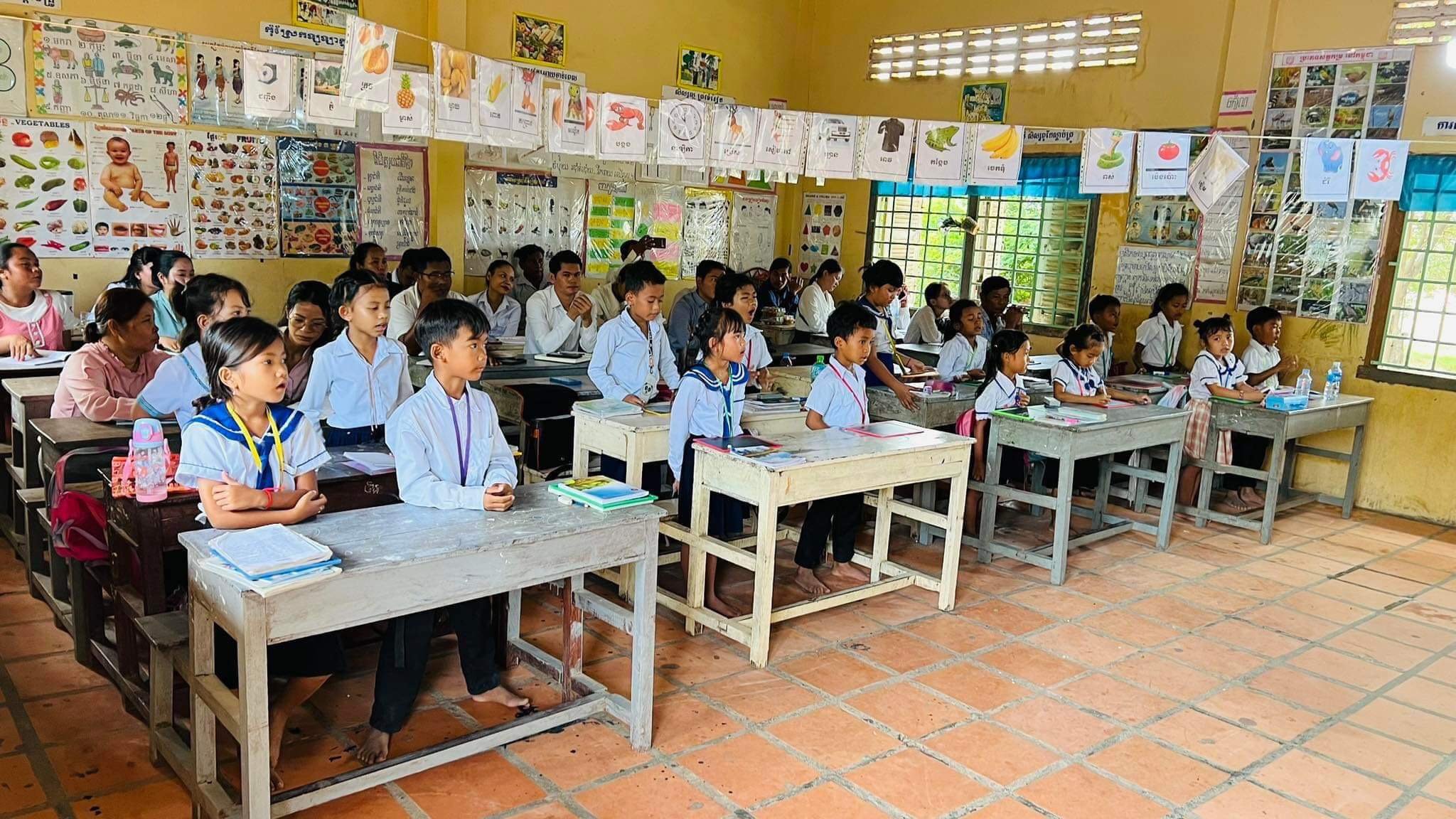First-Grade Teacher Overcomes Challenges to Empower Young Learners

- By Nhek Sreyleak
- January 21, 2024 9:00 PM
PHNOM PENH — Teaching kids may be one of the most challenging careers. And yet, 26-year-old Deth Nimol, a teacher of first-grade students at Phneat Simpaly Primary School in Kamboul District on the outskirts of Phnom Penh, considers this work crucial as it plays a major role in making children become good and responsible citizens of tomorrow, she said.
Nimol chose a career as a primary school teacher after passing the teacher examination in 2016 and enrolling in pedagogy training that same year.
She now has been teaching for five years. Each day, she must travel 10 kilometers to get to the school from her home in Sen Sok district. Even though this is a long and challenging commute due to the heavy traffic in the capital, this teacher remains passionate about her work.
Helping to Build Cambodia’s Human Capital
When asked why she wanted to teach, Nimol responded, "I chose a career as a primary school teacher because I want to be a part of helping society cultivate human resources."
Her goal is to make her young students understand intellectually and spiritually so that they can play their roles in society and contribute to national development, she said.
Although Nimol comes from a family of teachers, what has motivated her the most to choose this profession was her desire to transfer knowledge to the next generation, she said.

The photo shows fist-grade students in Nimol's classroom. Photo provided.
Teaching Is Easy to Say but Difficult in Practice
"Teaching" in the Khmer dictionary is defined as making others learn and develop through training and showing. For Nimol, teaching at all levels is always tricky, especially at the elementary school level.
"Children are like blank pages of papers, and they have different cognitive abilities,” Nimol said. Teaching first graders is very difficult, she said, especially at the beginning of the year when they are new students. Even teaching them to use a pencil to write is tricky, she said. "That’s why it needs teachers to be patient and use friendliness to support the children during the learning process.”
Then, a teacher must know children arrive with different levels of knowledge. For instance, those who were taught to use pencils to draw or write at home or in kindergarten will arrive with skills that others may not have, Nimol said. So, the teacher must be aware of this and help those who did not get such training, and support them morally so they can catch up, she said.
Good and Bad Times as a Primary School Teacher
Since she started teaching, there have been countless good and difficult moments, Nimol said. But the worst ones are when a young student is sick, she said.
"One day, one student got dizzy, and he turned pale," she said. “I tried to help him while being scared to death. I then tried to contact his parents to pick him up. The next day, his parents came to thank me for having taken care of him.
“This is an unforgettable memory for me,” Nimol said. Some people consider that, she said, “teachers are second parents.”
Since Nimol started teaching, she has become more and more passionate about the work she does, she said.
“This is a job that my family and I love,” she said. “It is a job for which we first have to use our abilities to pass the exam. It's a job that people from all walks of life respect and value.” By being in this field, Nimol said, she feels that she is a person that society needs since her work helps develop human resources.
Meanwhile, other factors such as a good school environment, good principals, and good fellow teachers have helped Nimol gain more confidence in her work: They have encouraged and guided her since she began teaching, she said.
In the future, Nimol hopes to become a high school teacher. She has just completed a bachelor's degree in Khmer literature at a university in Phnom Penh in the hope of doing so in the future, she said.















